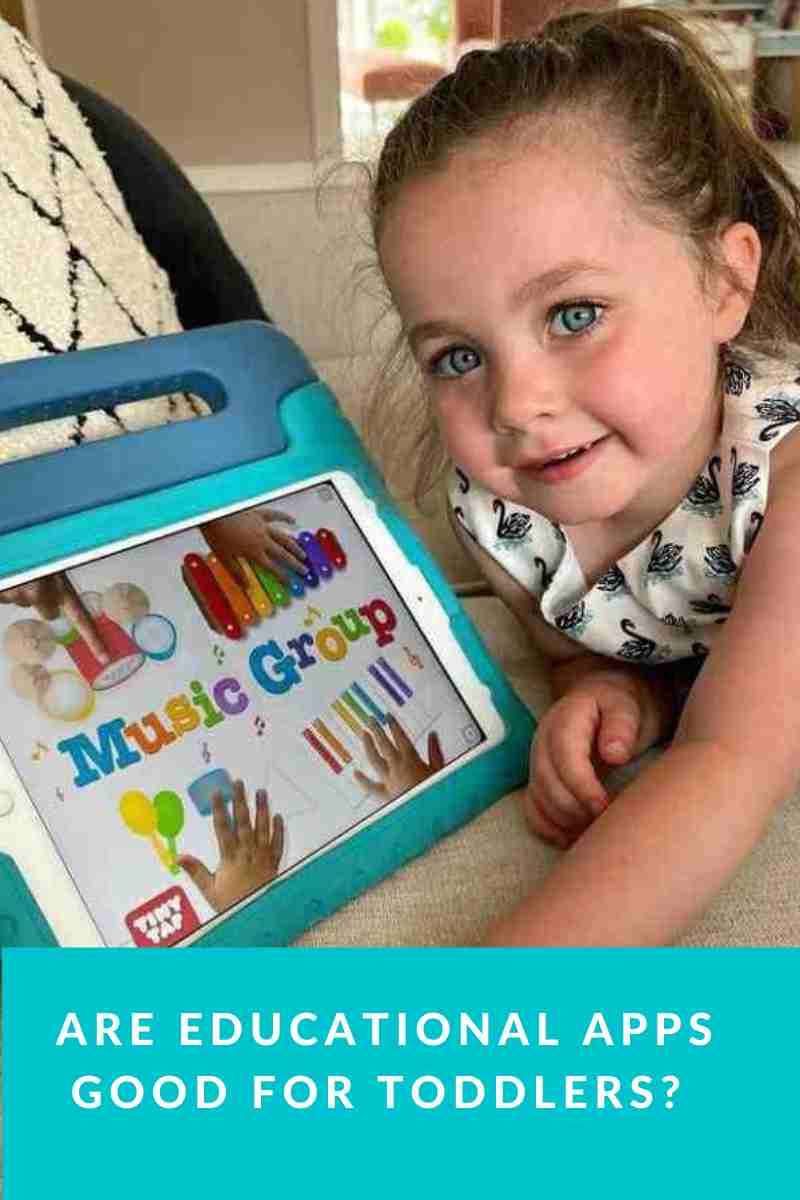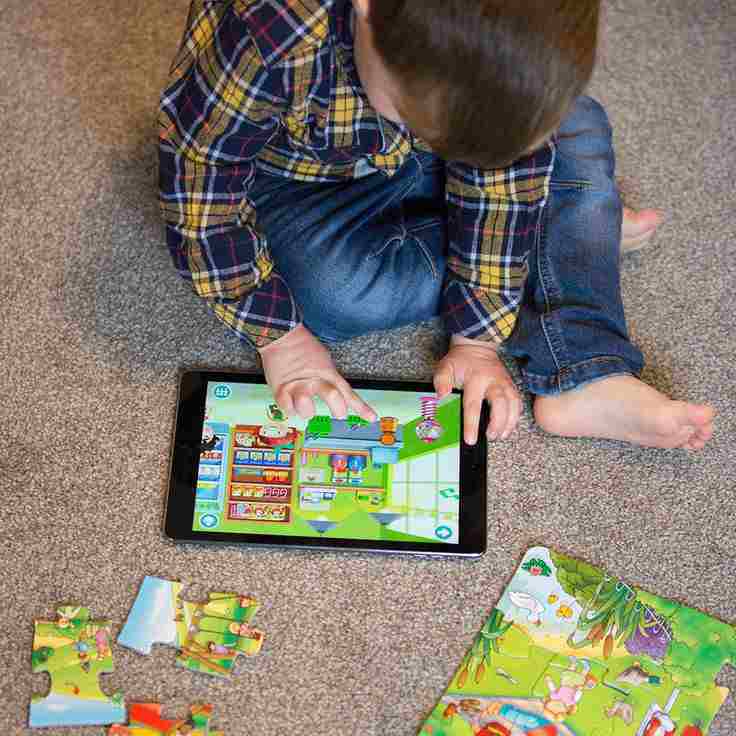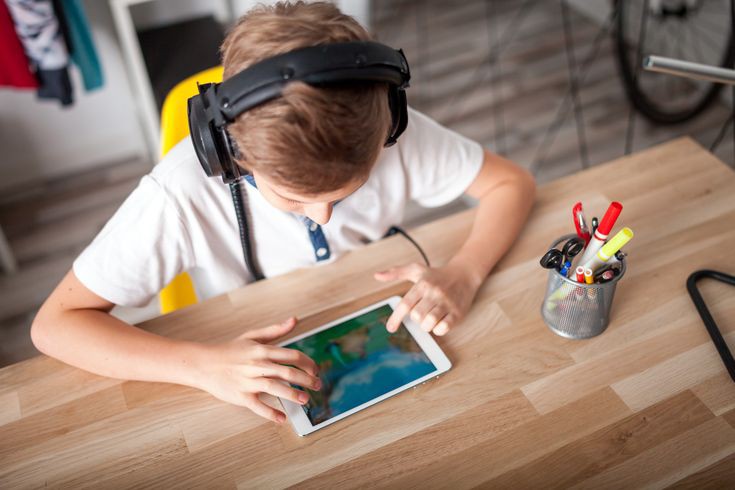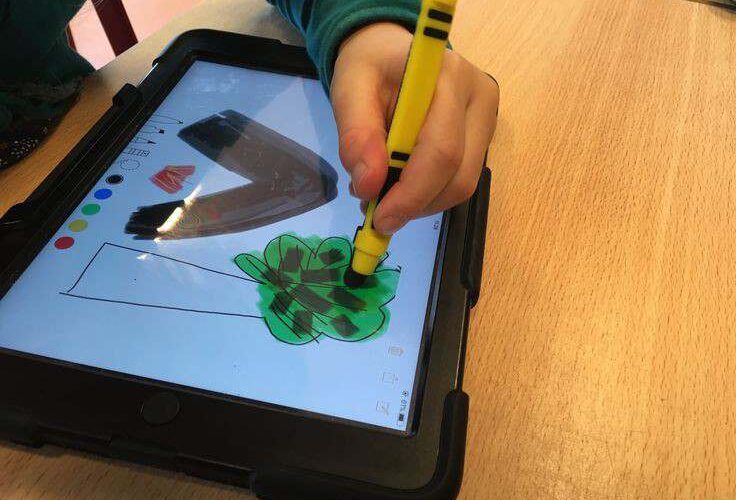It’s hard to imagine a day without our smartphones or tablets—and toddlers are no exception. Parents looking for ways to educate and entertain their toddlers often turn to educational apps, hoping they’ll provide a fun and interactive learning experience. But, are educational apps good for toddlers? Do they help with development, or do they do more harm than good?
In this article, we’ll look at the benefits and challenges of educational apps, evaluate the available data, and help you decide whether these resources would be a good addition to your child’s daily learning routine.

Are Educational Apps Good For Toddlers?
The answer is yes. Educational apps can be both a helpful resource and a potential source of concern. Toddlers are at a critical stage of brain development, where their sensory, cognitive, and social skills are rapidly evolving. Educational apps can offer a rich, interactive environment for toddlers to explore and learn at their own pace. But the question remains: Are educational apps good for toddlers, or do they pose risks for young kids?
The Science Behind Learning and Screen Time
Research shows that toddlers learn best through hands-on, sensory experiences and face-to-face interactions with caregivers. While some educational apps are designed based on research-backed principles, the screen-based learning they provide cannot fully replicate real-world engagement.
Advantages of Educational Apps for Toddlers:
1. Cognitive Skill Development:
Many educational apps are designed to help toddlers learn important foundational skills like counting, letter recognition, shape identification, and even basic problem-solving. I remember using an app with my toddler that focused on simple number recognition. At first, she was only able to identify a few numbers, but after consistent use, I saw her recognize them faster, even without the app.
Don’t miss:
Screen Time VS Outdoor Play: Striking the Right Balance
2. Language and Communication Skills:
Some apps focus on language development, introducing new vocabulary, improving listening skills, as well as supporting speech development through interactive conversations or storytelling. For instance, apps that encourage toddlers to repeat words or phrases can promote language acquisition and comprehension.

3. Creativity and Imagination:
Educational apps incorporate art and music activities, such as drawing, coloring, and playing virtual instruments. These activities can spark creativity, help them develop fine motor skills, and offer them the chance to experiment with colors, shapes, and sounds in ways that foster imagination. There’s an app I used with my daughter which featured a fun, interactive game where she matched animals with their corresponding sounds.
4. Interactive Learning Sparks Curiosity
Toddlers we all know are naturally curious, and educational apps often leverage that curiosity with vibrant visuals, interactive games, and fun challenges. My niece loves an app that teaches shapes and colors through a sorting game. She’ll gleefully match shapes to the correct outlines, and you can see the pride on her face when she gets it right.
5. Encourages Independence
It allows toddlers to explore and learn at their own pace. A storybook app we use lets my daughter tap on pictures to hear words, and it makes her feel like she’s reading independently. Watching her “read” on her own gives her confidence and frees up a few minutes for me to prep dinner.
6. Promotes Language Development
Many apps include storytelling, songs, and interactive vocabulary lessons that help toddlers develop language skills. My best friend’s toddler picked up simple phrases in Spanish from a bilingual app. It’s amazing how quickly young children absorb new languages when it’s presented in a fun, engaging way.
7. Supports Fine Motor Skill Development
Tapping, swiping, and dragging objects on a screen may seem simple, but these actions help toddlers refine their hand-eye coordination and fine motor skills. My nephew used to struggle with holding crayons, but after spending time on a drawing app, he became better at controlling his hand movements.

8. Learning at Their Own Pace:
Educational apps often allow toddlers to move through material at their own pace, giving them the freedom to revisit concepts that may be challenging. When my daughter was learning to recognize letters, the app allowed her to go through each letter as many times as she needed without pressure. If she struggled, the app repeated the lesson until she was ready to move on. This self-paced aspect helped her feel confident and reduce frustration.
9. Building Foundational Skills
From ABCs to numbers, many apps provide a structured way for toddlers to pick up essential skills early. My son started identifying letters and numbers with an alphabet tracing app. The repetition, combined with fun sounds and animations, made him want to keep practicing – something flashcards alone couldn’t achieve.
10. Encourages Early Problem-Solving Skills
Educational apps often include puzzles or challenges that encourage toddlers to think critically and solve problems. My daughter enjoys a shape-matching app where she has to figure out how to fit puzzle pieces together. Watching her persistence and eventual success is a reminder of how these apps foster problem-solving in a fun, approachable way.
11.Boosts Memory and Retention
Apps designed for matching games or memory challenges help toddlers strengthen their cognitive skills. My friend’s son plays a memory card game app with animal pictures, and over time, he’s become quick at recalling where each card is. This is more than just a game – it’s training his brain to remember and process information.
12. Teaches Patience and Persistence
Interactive apps teach toddlers the value of trying again when they don’t succeed at first. My son once struggled with a counting game that required him to place objects in the correct sequence. He kept at it, learning patience and persistence – two skills that will serve him well beyond the app.
13. Builds a Routine Around Learning
Using educational apps consistently – such as 15 minutes every morning or before bed – can help establish a daily learning routine. This structured time becomes something to look forward to, much like storytime or outdoor play. For example, our “learning app time” is a great transition before bedtime, replacing less interactive screen activities like cartoons.

14. Encourages Parent-Child Interaction
They aren’t just for solo play – they can create bonding moments. Apps that include storytelling or games are a wonderful opportunity for you to sit with your child, engage in their world, and encourage their learning journey. I’ve spent many evenings laughing and learning alongside my child while playing together.
Disadvantages of educational apps

1. Over-reliance on Screens:
Excessive screen time has been linked to problems such as shorter attention spans, sleep disturbances, and delays in language development, especially if it replaces face-to-face interactions or physical play.
2. Lack of Real-World Interaction
Apps can’t replace face-to-face interaction or hands-on experiences that are crucial for social and emotional development. In our case, while the app helped teach my toddler basic words and animal sounds, it lacked the engagement and warmth of a real-life interaction.
3. Quality Control
Some apps are overly simplistic, filled with flashy distractions, or poorly designed, which makes them less effective in teaching. It’s easy to get overwhelmed with the abundance of apps out there, so selecting the right ones can be challenging.
4. Social and Emotional Development:
The problem is that screen time can replace important face-to-face interactions with caregivers, peers, and other children. For toddlers, social interactions are crucial for developing empathy, communication skills, and emotional intelligence. Too much screen time can limit these opportunities.
5. Physical Health Risks
Too much screen time can lead to a sedentary lifestyle, increasing the risk of obesity and other health issues. If toddlers spend too much time on educational apps, they may miss out on opportunities to engage in physical activity, which is vital for developing motor skills and overall health.
6. Dependency
Some toddlers become accustomed to using apps for learning and rely too much on digital devices instead of learning through hands-on activities and real-world experiences.
7. Delayed Cognitive Development
While digital tools may promote learning in certain areas, they might not encourage the development of basic cognitive skills like problem-solving and critical thinking, which are often best nurtured through hands-on play.
8. Impaired Language Development
Passive engagement with educational apps may limit a toddler’s exposure to conversations with adults or peers, which can be crucial for developing language skills. Real-world interactions are vital for toddlers to learn new vocabulary and practice conversational skills.
9. Lack of Emotional Development
Emotional intelligence, including empathy, self-regulation, and understanding emotions, is best developed through in-person interactions and play. Digital apps may not provide the same emotional learning opportunities as physical play or social engagement with peers.
10. Reduced Attention Span
Some studies suggest that toddlers who spend significant time with interactive screens may develop shorter attention spans. This may make it harder for them to focus on less stimulating activities like reading a book or engaging in quiet play.

Are educational games good for toddlers?
Yes, educational games are great for toddlers when used appropriately. These games are designed to be both fun and learning-focused, helping toddlers develop essential skills like problem-solving, memory, and even language.
They often focus on teaching foundational concepts such as numbers, shapes, colors, letters, and even social skills like sharing or taking turns.
One example of a beneficial educational game is a digital puzzle app where they have to match pieces to complete an image. This type of game helps improve their fine motor skills, hand-eye coordination, and cognitive abilities. Furthermore, some games involve identifying animals or objects, which expand their vocabulary and help them recognize different sounds, shapes, and colors.
Best educational apps for toddlers
- Endless Alphabet: A fun app that helps toddlers learn new words through interactive puzzles and animations.
- Montessori Numbers: Teaches toddlers to recognize numbers and understand basic math concepts through hands-on activities.
- Baby Shark’s Big Show: Includes various educational games and activities that help toddlers develop cognitive and motor skills.
- Toca Boca: It’s designed to encourage creativity and problem-solving. Games like Toca Kitchen, Toca Nature, and Toca Life are highly interactive and educational.
- Peekaboo Barn: teaches them animal names and sounds through a peekaboo-style game.
- Sago Mini World: Provides a range of mini-games that teach toddlers about shapes, colors, animals, and more, all in a gentle and fun way.
- ABCmouse: Offers a well-rounded learning experience with subjects ranging from math to reading to art for older toddlers.
- Elmo Loves 123s: It features Elmo from Sesame Street, focusing on early math skills such as counting and number recognition.
- Khan Academy Kids: Provides a wealth of free, interactive activities for toddlers, focusing on early literacy, math, and social-emotional skills.
- Bimi Boo Kids Learning: An app that introduces toddlers to shapes, numbers, and basic problem-solving through colorful activities.

Is educational TV good for toddlers?
Yes, educational TV is good for toddlers and should be used with care. Shows designed for young children, with age-appropriate content, can support early learning by introducing concepts like colors, numbers, and language skills.
Watching with your toddler will help them understand and relate to the material, making the experience more enjoyable.
How to Choose the Right Educational Apps
-
- Look for apps designed by credible educational experts or organizations.
- Choose apps that encourage active participation, like problem-solving games or storytelling tools.
- Avoid apps loaded with ads or in-app purchases, which can distract from learning.
- Choose Age-Appropriate Apps
- Set Time Limits
- Play Together
- Use Apps that Encourage Active participation
- Prioritize Quality Over Quantity
- Balance screen time with Real-World Play
- Monitor Content Regularly
- Encourage Curiosity
Educational apps can be a helpful tool in your toddler’s early learning journey, but they are not a one-size-fits-all solution. The key lies in moderation, mindful selection, and active parental involvement. By combining the benefits of technology with traditional play and interaction, you can create a balanced and enriching environment for your child’s development.
What’s your experience with educational apps for toddlers? Share your thoughts in the comments.

